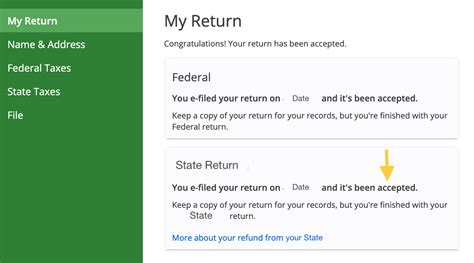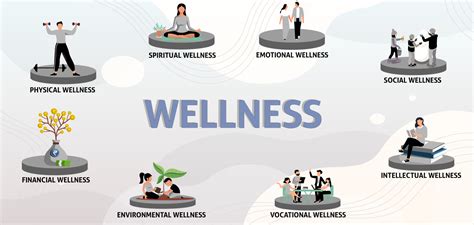Myocardial infarction, commonly known as a heart attack, is a serious medical condition that occurs when the blood flow to the heart is severely blocked, causing damage to the heart muscle. While it’s often associated with men, women are also at risk, and their symptoms can be subtle and different from those experienced by men. Recognizing the signs of a heart attack in women is crucial for prompt medical attention and preventing long-term damage.
The reality is that heart disease is the leading cause of death in women worldwide, and myocardial infarction is a significant contributor to this statistic. Unlike men, who often experience a classic heart attack with chest pain and shortness of breath, women may exhibit a range of symptoms that can be easily mistaken for other conditions. This is why it’s essential for women to be aware of the potential signs of a heart attack and seek medical help immediately if they experience any of these symptoms.
Understanding Myocardial Infarction
Before diving into the symptoms, it’s crucial to understand what happens during a myocardial infarction. The heart muscle requires a constant supply of blood to function properly. This blood is supplied through the coronary arteries. When one of these arteries becomes blocked due to a blood clot, the part of the heart muscle supplied by that artery is deprived of oxygen and nutrients. This can lead to damage or death of the heart muscle, which is known as a myocardial infarction.
The blockage is often caused by atherosclerosis, a condition where the arteries become narrowed and hardened due to the buildup of cholesterol and other materials, known as plaques, on their inner walls. When a plaque ruptures, it can trigger the formation of a blood clot that blocks the artery, leading to a heart attack.
Symptoms of Myocardial Infarction in Women
Women may experience a range of symptoms during a heart attack, some of which can be quite different from the classic symptoms seen in men. These symptoms can vary in severity and may come on suddenly or develop over time. Some of the common symptoms of myocardial infarction in women include:
Chest Pain or Discomfort: Although not as common in women as in men, chest pain or discomfort is a classic symptom of a heart attack. It may feel like tightness, pressure, or a squeezing sensation in the chest that lasts for more than a few minutes or goes away and comes back.
Pain or Discomfort in One or Both Arms: Women may experience pain or discomfort in one or both arms, the back, neck, jaw, or stomach. This pain can be a sign that the heart is not receiving enough blood.
Shortness of Breath: Feeling winded or having trouble breathing can be a symptom of a heart attack, even if you haven’t engaged in any physical activity. This occurs because the heart is not pumping efficiently, leading to fluid buildup in the lungs.
Cold Sweats: Breaking out in cold sweats, feeling clammy, or experiencing nausea and vomiting can be symptoms of a heart attack in women.
Fatigue: Unusual or extreme tiredness that persists even after resting can be a sign of a heart attack. Women may find it difficult to carry out their daily activities due to a lack of energy.
Lightheadedness or Dizziness: Feeling faint or dizzy can occur due to decreased blood flow to the brain during a heart attack.
Panic or Anxiety: A sense of panic or anxiety that is not relieved by resting can be a symptom of a myocardial infarction in women.
Coughing or Wheezing: In some cases, women may experience coughing or wheezing due to fluid buildup in the lungs, which can be a sign of heart failure following a heart attack.
Rapid or Irregular Heartbeat: A rapid or irregular heartbeat can be a symptom of a heart attack, as the heart tries to compensate for the blockage.
Pain in the Jaw, Neck, or Back: Pain or discomfort in the jaw, neck, or back can occur as the pain from the heart radiates to these areas.
Indigestion or Heartburn: Some women may experience symptoms similar to indigestion or heartburn during a heart attack, which can include a feeling of fullness or discomfort in the upper abdomen.
Palpitations: Feeling like your heart is pounding, racing, or skipping beats can be a symptom of a heart attack in women.
Seeking Medical Attention
If you or someone you know is experiencing any of these symptoms, it’s crucial to call emergency services immediately. Prompt medical attention can significantly improve outcomes and reduce the risk of long-term damage to the heart muscle. When calling for emergency help, remain as calm as possible and provide detailed information about the symptoms and any medical history.
Preventing Myocardial Infarction
While some risk factors for heart disease cannot be changed, such as age or family history, there are many steps women can take to reduce their risk of having a heart attack. Lifestyle modifications include:
- Regular Exercise: Engaging in at least 150 minutes of moderate aerobic activity or 75 minutes of vigorous aerobic activity, or a combination of both, each week.
- Healthy Diet: Eating a diet rich in fruits, vegetables, whole grains, lean proteins, and low-fat dairy products can help lower cholesterol and blood pressure.
- Maintaining a Healthy Weight: Being overweight or obese increases your risk of heart disease.
- Quitting Smoking: Smoking is a significant risk factor for heart disease.
- Limiting Alcohol: Drinking too much alcohol can raise blood pressure, contribute to obesity, and increase the risk of heart disease.
- Managing Stress: Chronic stress can increase your risk of heart disease; finding healthy ways to manage stress is essential.
Conclusion
Myocardial infarction is a serious condition that requires immediate medical attention. Women must be aware of the diverse range of symptoms that can signal a heart attack and not hesitate to seek help if they experience any of these signs. By understanding the symptoms, taking preventive measures, and seeking timely medical care, women can significantly reduce their risk of heart disease and improve their overall health and well-being.
What are the most common symptoms of a heart attack in women?
+The symptoms of a heart attack in women can vary widely but often include chest pain or discomfort, pain or discomfort in one or both arms, shortness of breath, cold sweats, fatigue, lightheadedness or dizziness, panic or anxiety, coughing or wheezing, rapid or irregular heartbeat, pain in the jaw, neck, or back, indigestion or heartburn, and palpitations.
How can women reduce their risk of having a heart attack?
+Women can reduce their risk of having a heart attack by engaging in regular exercise, eating a healthy diet, maintaining a healthy weight, quitting smoking, limiting alcohol consumption, and managing stress. Additionally, controlling high blood pressure, high cholesterol, and diabetes through medication and lifestyle changes can also help reduce the risk.
What should I do if I think I’m having a heart attack?
+If you think you’re having a heart attack, call emergency services immediately. Provide as much information as possible about your symptoms and any medical history. While waiting for help to arrive, remain calm and try to rest or sit in a comfortable position. If you are alone, try to get to a nearby hospital or a place where someone can help you.



